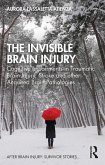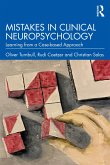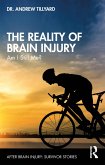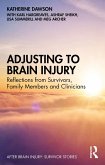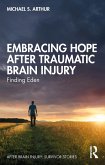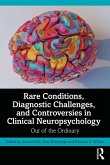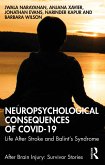This moving account showcases Aurora's growing awareness of her impairments, their manifestation in daily life, how they are perceived, or not, by others and the tools that helped her survive. Each chapter combines Aurora's perspective with the scientific view of a professional neuropsychologist or physiatrist who provide commentaries on her various symptoms.
This book is valuable reading for professionals involved in neurorehabilitation and clinical neuropsychology and for clinical psychology students. It is a must read for ABI survivors, those around them and clinicians, who are all an essential part of the rehabilitation, adjustment and acceptance process involved with ABI.
Dieser Download kann aus rechtlichen Gründen nur mit Rechnungsadresse in A, B, BG, CY, CZ, D, DK, EW, E, FIN, F, GR, HR, H, IRL, I, LT, L, LR, M, NL, PL, P, R, S, SLO, SK ausgeliefert werden.
'Wow! This book captures the essence of the brain injury experience brilliantly. It is written in clear language that is easy to read and digest, addressing all the common challenges that people with brain injuries and their families go through in a way that few other such books have done. As both a clinical psychologist and a brain injury survivor, Aurora Lassaletta uniquely applies insightfulness and keen observation to her personal journey from "normal life" to injury and on through years of rehabilitation and personal growth. Her message of perseverance and hard work and hope is an inspiration not only for survivors and their families, but also for professionals, who will undoubtedly re-think their stereotypes of rehabilitation as mostly impairment-based and only relevant in the acute stages of injury. I can't wait to have the book in hand to recommend to my colleagues and clients with brain injuries alike.' - Jill Winegardner, PhD, Director of Neuropsychological Rehabilitation, University Hospitals Cleveland Medical Center, Cleveland, Ohio, USA
'This book, written by a colleague, provides a moving, honest and brave account of the experience of suffering a traumatic brain injury. The narrative and commentary vividly brings to the reader the sheer determination, professional support, and resilience required to make the long journey back to living a meaningful life after suffering a traumatic brain injury. It is essential reading for all of those interested in the real story of what long-term rehabilitation after traumatic brain injury actually entails for many people.' - Rudi Coetzer, DClinPsy, School of Psychology, Bangor University, UK.



